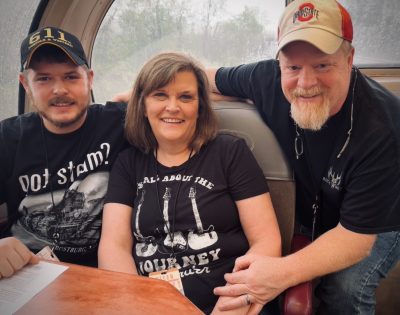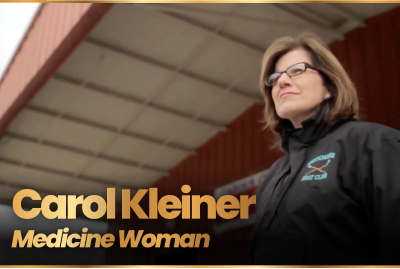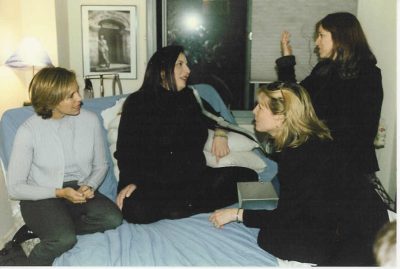Cathy Kettner Weber and Richard Weber know all too well the devastation caused by ALS. They lost their father, Art, to ALS in 1999 and their sisters, Peggy and Cindy, in 2018 and 2021, respectively. Their brother, Jim, is currently living with ALS, and another sister carries the genetic mutation but is not symptomatic. Of the six siblings carrying the mutation, an additional 18 children are at risk in the next generation. The Weber family is in a fight for their lives, and for the lives of other families who have been stricken by genetic forms of ALS for generations.
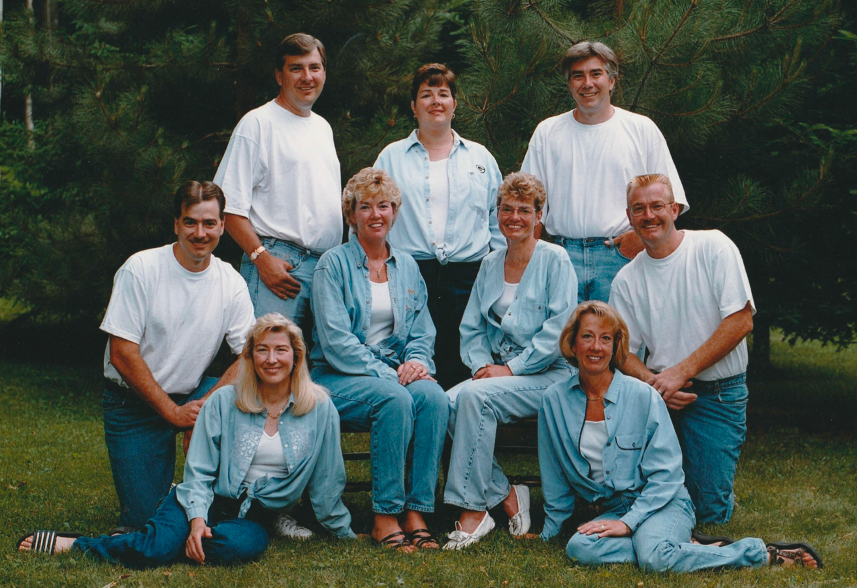
Unlike some families, the Webers know the gene causing their disease: CHCHD10. This gene is responsible for the production of a mitochondrial protein, and scientists determined it to be disease-causing in 2014. While this information has offered insight into the cause of the family’s ALS, there has still not been a way to slow or stop it.
Then came the phone call.
In 2020, Cathy and Richard called Project ALS after hearing about the development of a novel antisense oligonucleotide (ASO) therapy for people living with FUS ALS. Project ALS knew we had to work hard and fast to connect the Webers with experts who could, for the first time, offer them a glimmer of hope. So was born NextGen ALS, a Weber family initiative in collaboration with Project ALS that is committed to raising funds for targeted research toward treatments and cures for genetic forms of ALS; first CHCHD10, then other rare genetic mutations.
Project ALS knew who to turn to.
The lab of Dr. Giovanni Manfredi at Weill Cornell Medicine in New York City investigates the mechanisms underlying alterations of mitochondrial dynamics, structure, and function in the context of neuromuscular disease. Dr. Manfredi’s lab had been exploring the development of mouse models with mutant mitochondrial CHCHD10 to better understand disease mechanisms of ALS and frontotemporal dementia. The connection was clear, and Project ALS rallied to bring Dr. Manfredi’s team together with the Weber family.

In late 2020—on the heels of the development and administration of a tailor-made ASO for people living with FUS ALS—a research initiative was launched in collaboration with Project ALS, the Weber family, Weill Cornell, and Columbia University. The goal? First, to develop a detailed characterization of the mutated CHCHD10 R15L gene (the specific mutation affecting the Weber family) through in vitro and in vivo studies, then, to test therapeutic strategies to treat the genetic ALS caused by the mutated CHCHD10 gene.
Over the past year, this partnership has progressed effectively and efficiently.
Dr. Manfredi’s lab has studied disease manifestations and biochemistry in in-vivo models and has used in-vitro cultured human motor neurons derived from cells that carry CHCHD10 mutations to better characterize CHCHD10 mutants. Already, they have classified two promising therapeutic strategies: decreasing the levels of CHCHD10 by administration of an ASO, and dietary supplementation with metabolites otherwise lacking or useful for bolstering mitochondrial function. They have received multiple batches of ASOs from our industry partner to test in vivo, and have shown reduced CHCHD10 in spinal cord motor neuron-like cells, as well as in mouse embryonic fibroblast (MEF) cells. Concurrently, the team is assessing two different diet-based approaches to determine beneficial effects or disease exacerbation and have recently published a paper in Cell Reports about these metabolic changes.
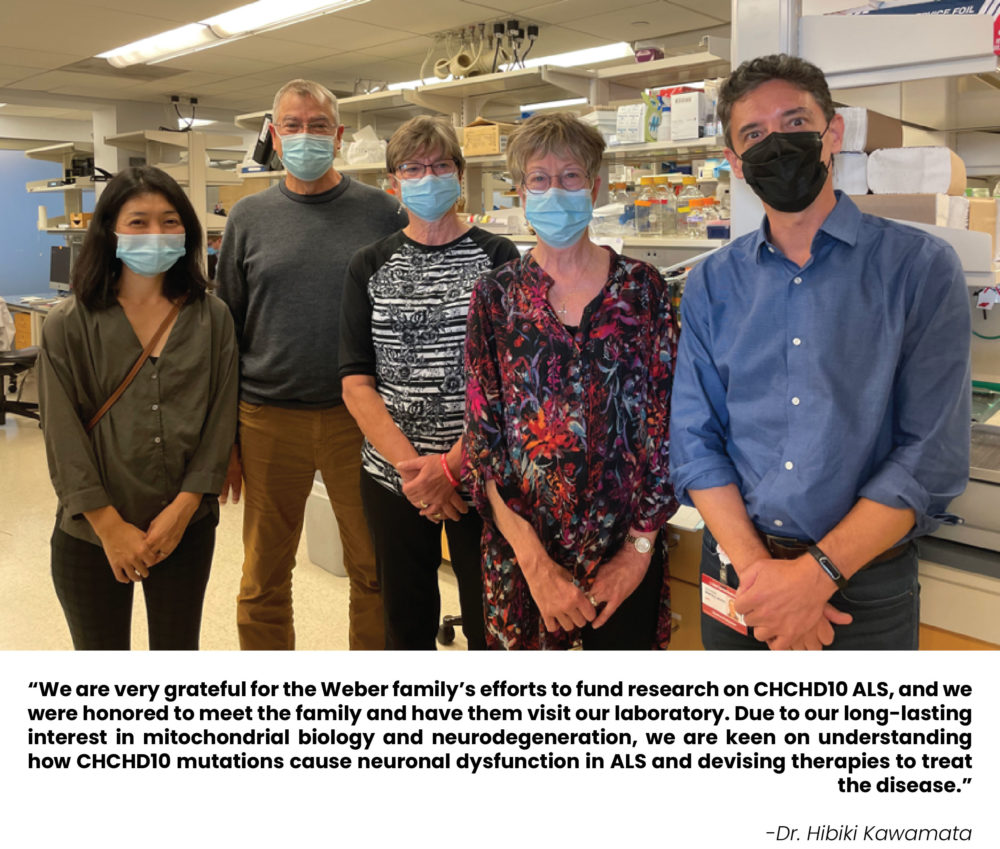
In addition to the scientific breakthroughs, NextGen ALS has raised $250,000 for this critical initiative through their extraordinary fundraising efforts. Three members of the family also traveled to New York to provide physical samples for in-vitro testing and research, and to tour the Weill Cornell Medicine laboratories where the testing is being conducted.
And we’re not done yet.
The next step is to test potential therapeutic strategies in motor neurons generated from samples given by members of the Weber family. Then, we follow the blueprint set forth by our jacifusen efforts to move forward an ASO therapy to the Webers and all people living with CHCHD10 ALS.
Together, NextGen ALS and Project ALS are committed to bringing hope, treatments, and cures to families stricken by familial ALS. Our hope is that this generation will be the last generation to live with the fear and devastation of genetic forms of this disease.

